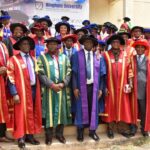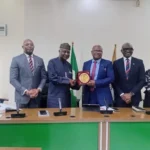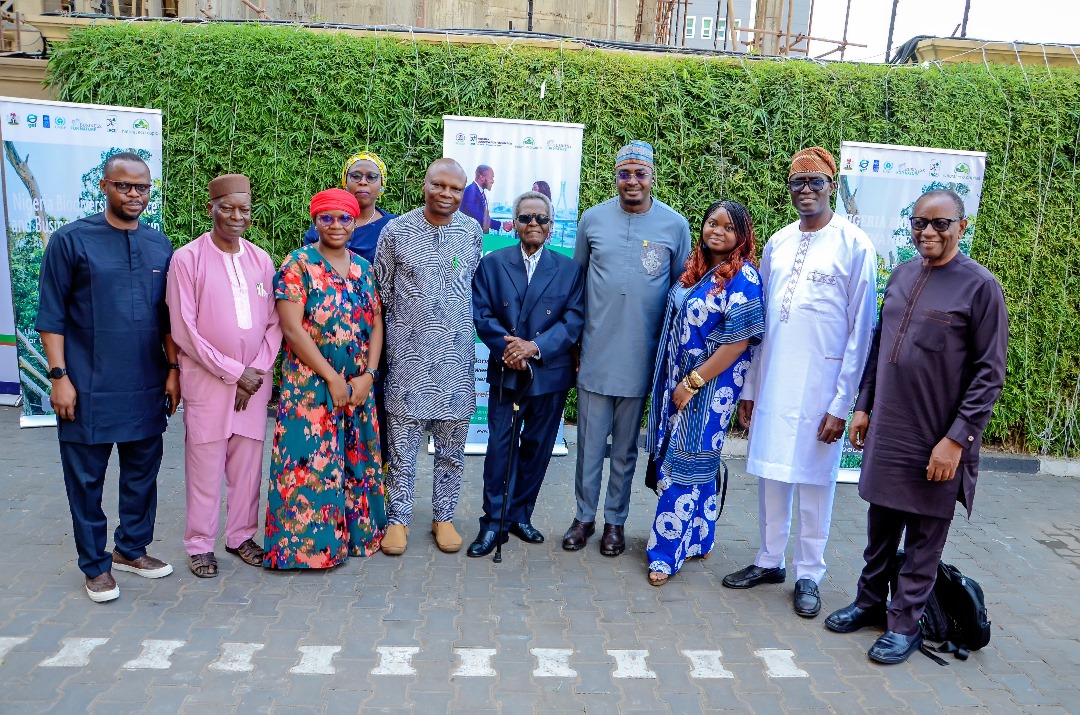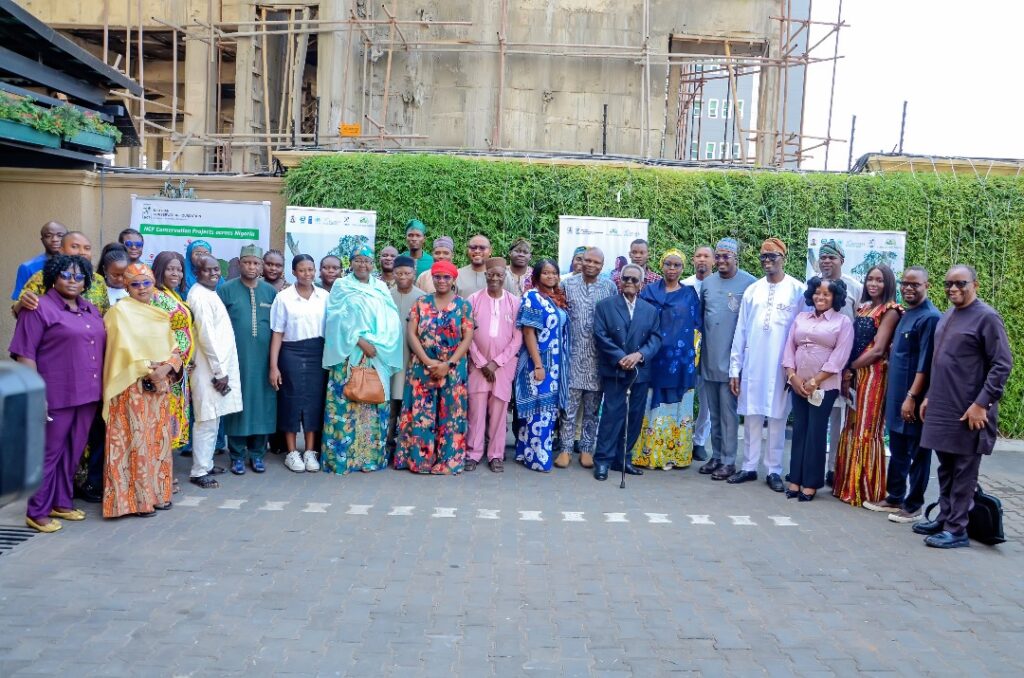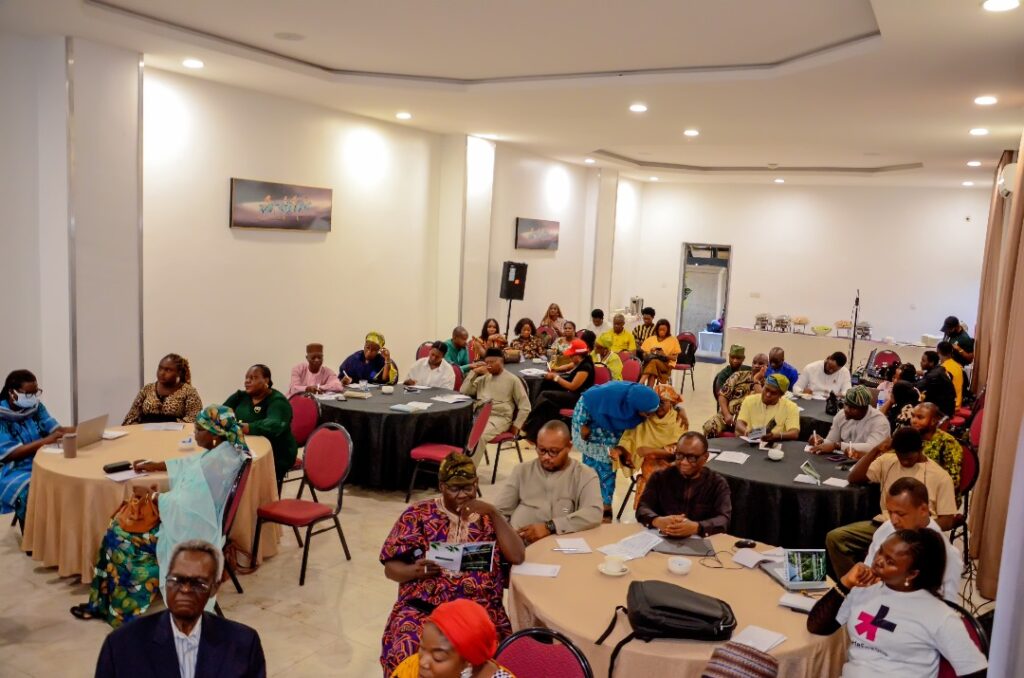By Abigael Joshua
Stakeholders in the environment sector are expediting actions to conserve nature through Biodiversity Finance Initiative (BIOFIN) to sustain livelihoods in Nigeria.
They stated this on Friday in Abuja during the inauguration of the Nigeria Biodiversity Finance Initiative (BIOFIN) in line with the National Biodiversity Strategy and Action Plan (NBSAP).
The theme of the event is: “Unlocking Private Sector Engagement for the implementation of the NBSAP.”
Mrs Halima Bawa-Bwari, Director of Forestry, Federal Ministry of Environment, said that Nigeria would take a decisive step toward securing the future of forests, ecosystems, and the invaluable biodiversity that sustains life and livelihoods.
Represented by Dr Aiwuyo Christopher, Deputy Director of Forestry in the ministry, Bawa Bwari said forests are living systems that regulate the climate, protect watersheds, provide food and medicine, and serve as the backbone of rural economies.
“Yet, they face unprecedented pressures from unsustainable exploitation, land-use change, and climate variability.
“The urgency to act has never been greater. NBSAP provides us with a clear roadmap to conserve, sustainably use, and equitably share the benefits of biodiversity BIOFIN complements this vision by mobilising innovative financing solutions ensuring that our commitments are not only aspirational but achievable,” she said.
Bawa-Bwari said the federal government could bridge the financing gap for biodiversity conservation, strengthen partnerships between government, private sector, civil society, and local communities through BIOFIN.
This, she added would promote sustainable forestry practices that balance ecological integrity with economic growth, and empower communities as custodians of biodiversity, ensuring they benefit directly from conservation efforts.
“It may interest you to know that, Nigeria has consistently demonstrated its commitment to biodiversity conservation.
“Through the NBSAP, our nation has pledged to integrate biodiversity financing into national development planning, strengthen institutional frameworks, and mobilise both domestic and international resources.
“This commitment is reflected in: Increased budgetary allocations to forestry and conservation programmes, partnerships with development partners to unlock innovative financing mechanisms.
“Mainstreaming biodiversity into key sectors such as agriculture, energy, and infrastructure, Community-driven initiatives that ensure local custodians benefit directly from conservation efforts,
“This initiative is not just about funding; it is about transforming the way we value nature. It is about recognising that investing in biodiversity is investing in our collective future, our health, our prosperity, and our resilience as a nation,” she said.
Mrs Oluwasooto Ajayi of the Africa Lead, Business For Nature, emphasised the need to unlock finance for the project to have an economy that recognises the foundation of biodiversity.
Also, Mrs Sikeade Egbuwalo, Biodiversity Desk Officer in the Ministry said that through BIOFIN, Nigeria’s NBSAP can be adequately financed by mobilising more public and private sector investments, unlocking new revenue streams, and aligning economic incentives with conservation.
On his part, Eugene Itua, a Sustainability Expert, Natural Eco Capital, advocated for improved funding to enhance biodiversity for development in the country. (NAN)(www.nannews.ng)
Edited by Sadiya Hamza




